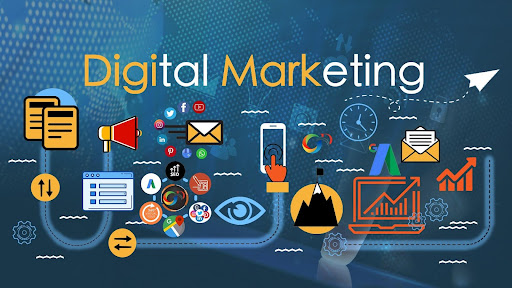
Pay Per Click For Small Businesses
Pay Per Click For Small Businesses
Pay Per click For Small Business
In today’s competitive digital landscape, small businesses need effective online marketing strategies to thrive and grow. Pay Per Click (PPC) advertising has emerged as a powerful tool to drive targeted website traffic and generate leads. In this article, we will explore the benefits of PPC for small businesses and provide valuable insights into how to implement a successful PPC campaign.
Table of Contents
- Introduction: Understanding Pay Per Click
- Why Pay Per Click is Essential for Small Businesses
- Setting Up a PPC Campaign
- Defining Goals and Objectives
- Conducting Keyword Research
- Creating Compelling Ad Copies
- Designing Landing Pages
- Setting a Budget
- Choosing the Right PPC Platform
- Google Ads
- Bing Ads
- Social Media Advertising
- Targeting the Right Audience
- Geographic Targeting
- Demographic Targeting
- Interest-Based Targeting
- Remarketing
- Monitoring and Optimizing Your PPC Campaign
- Tracking Conversions
- Analyzing Performance Metrics
- Adjusting Keyword Bids
- A/B Testing
- Common Mistakes to Avoid
- Conclusion
- FAQs
1 - Introduction: Understanding Pay Per Click
Pay Per Click is an online advertising model where advertisers pay a fee each time their ad is clicked. It allows businesses to bid for ad placement in search engine results pages (SERPs), websites, and social media platforms. PPC offers immediate visibility and drives targeted traffic to a website, making it an attractive option for small businesses looking to boost their online presence.

Pay Per Click For Small Businesses
2 - Why Pay Per Click is Essential for Small Businesses
Pay Per Click offers several advantages that make it an essential marketing strategy for small businesses:
Increased Visibility and Reach: With PPC, small businesses can compete with larger companies and appear at the top of search engine results. This increased visibility allows them to reach a broader audience and attract potential customers who are actively searching for their products or services.
Cost-Effective Advertising: PPC offers a cost-effective advertising method as businesses only pay when their ads are clicked. This ensures that marketing budgets are utilized efficiently, with every click potentially leading to a conversion or sale.
Targeted Marketing: PPC allows businesses to target specific keywords, demographics, interests, and geographic locations. This precise targeting ensures that ads are shown to the right audience, increasing the chances of generating qualified leads and driving conversions.
Immediate Results: Unlike other marketing strategies that require time to yield results, PPC provides immediate visibility and results. Small businesses can quickly launch a PPC campaign and start attracting targeted traffic to their website, generating leads, and increasing sales.
3 - Setting Up a PPC Campaign for Small Businesses
To create a successful PPC campaign, small businesses should follow these essential steps:
Defining Goals and Objectives: Before launching a PPC campaign, it is crucial to define clear goals and objectives. Whether it is increasing website traffic, generating leads, or boosting sales, setting specific targets will help guide the campaign’s direction.
Conducting Keyword Research: Keyword research is a critical step in PPC campaign setup. It involves identifying relevant keywords and phrases that potential customers are likely to use when searching for products or services. Tools like Google Keyword Planner can assist in discovering high-impact keywords with sufficient search volume and reasonable competition.
Creating Compelling Ad Copies: Well-crafted ad copies that highlight the unique selling points of a small business are essential to drive clicks and conversions. Ad copies
Creating Compelling Ad Copies: Well-crafted ad copies that highlight the unique selling points of a small business are essential to driving clicks and conversions. Ad copies should be concise, engaging, and tailored to the target audience. Including compelling call-to-actions (CTAs) and relevant keywords can significantly improve the effectiveness of the ads.
Designing Landing Pages: A well-designed landing page is crucial for converting visitors into customers. The landing page should be visually appealing, user-friendly, and optimized for conversions. It should have a clear and concise message that aligns with the ad copy, making it easy for visitors to take the desired action, such as making a purchase or submitting a contact form.

Setting a Budget: Small businesses need to set a realistic budget for their PPC campaigns. It’s important to determine how much they are willing to spend on advertising and allocate the budget strategically across different campaigns and platforms. Regular monitoring and optimization of the budget will ensure that the funds are being utilized effectively.
4 - Choosing the Right PPC Platform
There are several PPC platforms available, and small businesses should choose the ones that align with their target audience and goals. Here are some popular platforms:
Google Ads is the largest and most widely used PPC platform. It allows businesses to display ads on the Google search engine and its partner websites. With Google Ads, small businesses can target specific keywords, demographics, and geographic locations to reach their desired audience.
Bing Ads
Bing Ads, powered by Microsoft, provides an alternative to Google Ads. Although the search volume is lower than Google, Bing Ads can still be an effective platform for reaching a specific audience. It’s worth considering, especially if the target market includes demographics that are more active on Bing.
Social Media Advertising
Social media platforms like Facebook, Instagram, Twitter, and LinkedIn offer powerful advertising options. Each platform has its targeting capabilities and audience demographics. Small businesses should identify the platforms where their target audience is most active and utilize social media advertising accordingly.

5 - . Targeting the Right Audience
Targeting the right audience is crucial for the success of a PPC campaign. Here are some targeting options to consider:
Geographic Targeting
Small businesses can target specific locations or regions where their products or services are available. This ensures that their ads are shown to users who are more likely to convert into customers.
Demographic Targeting
Demographic targeting allows businesses to narrow down their audience based on factors such as age, gender, income, and education. This helps in delivering ads to a specific group of people who are most likely to be interested in the offerings.
Interest-Based Targeting
Interest-based targeting focuses on displaying ads to users who have shown interest in similar products or services. Platforms like Facebook offer robust interest targeting options that can be leveraged to reach a highly relevant audience.
Remarketing
Remarketing involves targeting users who have previously visited the small business’s website or interacted with their ads. This helps in re-engaging potential customers and increasing the chances of conversions.
6 - . Monitoring and Optimizing Your PPC Campaign
To ensure the success of a PPC campaign, continuous monitoring, and optimization are essential. Here are some key aspects to focus on:
Tracking Conversions
Implementing conversion tracking allows businesses to measure the success of their campaigns accurately. By tracking conversions, they can identify which keywords, ads, or landing pages are generating the most valuable results and make data-driven decisions for optimization.
Analyzing Performance Metrics
The importance of tracking performance indicators like click-through rates (CTR), conversion rates, cost per click (CPC), and return on ad spend (ROAS) cannot be overstated. Analyzing these metrics helps in identifying areas of improvement and optimizing the campaign accordingly.
Adjusting Keyword Bids
Regularly reviewing and adjusting keyword bids is essential to maximize the effectiveness of a PPC campaign. By analyzing the performance of keywords and adjusting bids accordingly, small businesses can ensure that their ads are being displayed prominently for the most valuable keywords.
A/B Testing
A/B testing involves creating multiple variations of ads, landing pages, or other campaign elements to test their performance. By comparing the results of different variations, small businesses can identify which elements are driving better results and make data-driven decisions to optimize their campaigns.

7 - Common Mistakes to Avoid
While implementing a PPC campaign, small businesses should be aware of common mistakes that can hinder their success. Here are a few to watch out for:
- Neglecting regular campaign monitoring and optimization.
- Overlooking the importance of keyword research and targeting.
- Failing to create compelling ad copies and landing pages.
- Setting unrealistic budgets or not monitoring budget utilization.
- Ignoring performance metrics and not making data-driven decisions.
8 - Conclusion
Pay Per Click (PPC) advertising offers small businesses a powerful solution to drive targeted traffic, boost visibility, and generate valuable leads in today’s digital landscape. By carefully following the steps provided in this article, businesses can create and optimize highly successful PPC campaigns that align with their marketing goals. If you’re feeling overwhelmed about diving into the world of PPC, don’t worry. Danabak Digital Marketing Agency Charlotte is here to support you throughout the entire process. With their expertise and dedicated Google Ads service, they can guide you in launching the perfect campaign for your business, ensuring a seamless and effective implementation.
9 - FAQs (Frequently Asked Questions)
- Is Pay Per Click suitable for all types of small businesses? Pay Per Click can be beneficial for a wide range of small businesses. However, it’s important to consider factors such as budget, target audience, and industry competition before implementing a PPC campaign.
- How long does it take to see results from a PPC campaign? PPC campaigns can yield immediate results in terms of visibility and traffic. However, it may take time to optimize the campaign and see significant conversions. Continuous monitoring and optimization are key to achieving the best results.
- Can small businesses manage PPC campaigns on their own? While small businesses can manage PPC campaigns independently, it requires expertise and time commitment. It’s advisable to consider working with a professional or an agency experienced in PPC advertising to maximize results.
- How much should small businesses allocate for their PPC budget? The PPC budget for small businesses varies based on factors like industry, target audience, and campaign goals. It’s important to set a realistic budget that allows for effective campaign management and optimization.
- Can PPC campaigns help in improving organic search rankings? PPC campaigns and organic search rankings are separate entities. While PPC can provide immediate visibility, it doesn’t directly impact organic search rankings. However, a well-optimized website and quality content can positively influence both PPC and organic search performance.









